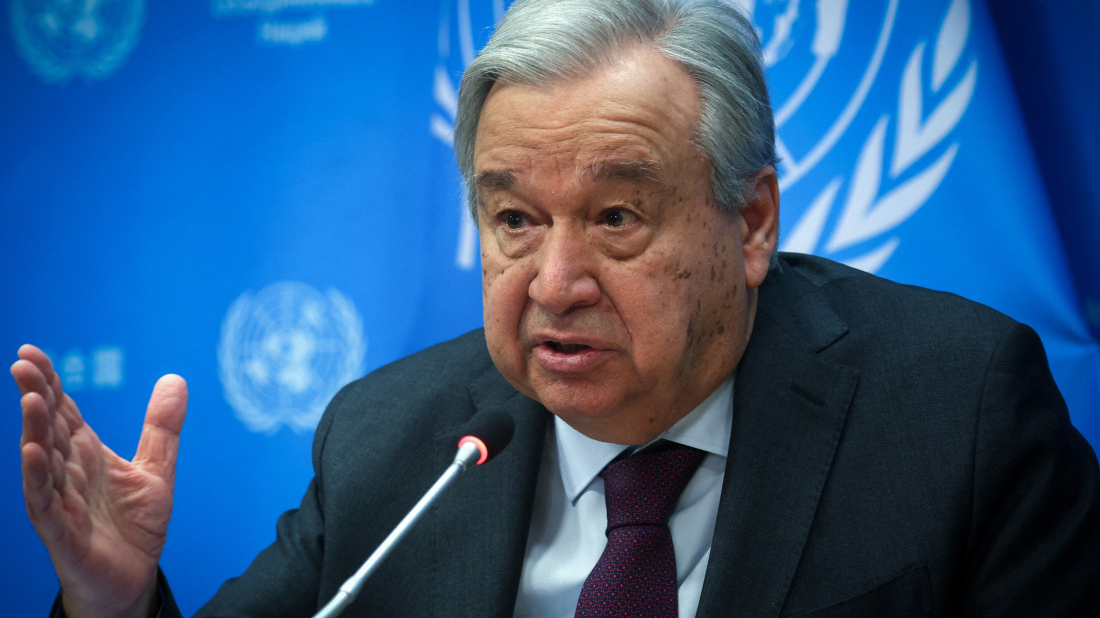live Trump says U.S. has enough weapons to fight wars 'forever': All the latest news on the Iran strikes
U.S. President Donald Trump said the U.S. military has enough stockpiled weapons to fight wars 'forever' in a so...

United Nations warned that the world is on course for a 3.1°C temperature increase by the end of the century
In a report released this week, the United Nations warned that the world is on course for a 3.1°C temperature increase by the end of the century, well above the internationally agreed limit of 1.5°C. Without immediate and deep cuts to greenhouse gas emissions, this trajectory risks an escalation of extreme weather events, threatening ecosystems, economies, and vulnerable communities across the globe.
UN Secretary-General António Guterres emphasized that the “emissions gap” – the difference between current emissions and the reductions needed to limit warming – is a pressing issue with tangible consequences. "We are teetering on a planetary tightrope,” Guterres said in a video message, stressing the link between rising emissions and increasingly frequent and severe climate disasters. He urged world leaders to act decisively at the upcoming COP29 UN Climate Change Conference in Baku, Azerbaijan, in November, framing it as an opportunity to establish ambitious new national plans to reduce emissions.
“This conference starts the clock for countries to deliver new national climate action plans by next year,” Guterres said, calling on governments to align their strategies with the 1.5°C target set under the Paris Agreement. He highlighted the responsibility of the G20 nations – which account for roughly 80 percent of global emissions – to lead these efforts and drive economy-wide emissions cuts across all sectors.
While the report paints a grim outlook, Guterres offered a glimmer of hope, emphasizing that current, affordable technologies could achieve the necessary emissions reductions by 2030 and 2035 if countries substantially increase their climate ambitions and commit to robust support systems.
"The path to 1.5°C is still within reach,” he said. “But only if there’s a surge in ambition and support.”
Follow the latest developments and global reaction after the U.S. and Israel launched “major combat operations” in Iran, prompting retaliation from Tehran.
The Kremlin is utilising the recent United States and Israeli military strikes on Iran to validate its ongoing war in Ukraine. Russian officials are pointing to the escalation in the Middle East as evidence that Western nations do not adhere to international rules.
Saudi Arabia’s state oil giant Saudi Aramco closed its Ras Tanura refinery on Monday following an Iranian drone strike, an industry source told Reuters as Tehran retaliated across the Gulf after a U.S.-Israeli attack on Iranian targets over the weekend.
The Middle East crisis intensifies after the deadly attack on the compound of the Supreme Leader of Iran Ali Khamenei on Saturday that killed him, other family members and senior figures. Iran has launched retaliatory strikes on U.S. targets in the region.
U.S. President Donald Trump said the U.S. military has enough stockpiled weapons to fight wars 'forever' in a social media post late on Monday. The remarks came hours before conflict in Iran and the Middle East entered its fourth day.
The death toll from heavy rains and flooding in Brazil’s Minas Gerais state has risen to 46, authorities said, with 21 people still reported missing. The storms triggered landslides and widespread flooding, displacing thousands across Juiz de Fora and Uba.
The administration of U.S. President Donald Trump on Thursday (12 February) announced the repeal of a scientific finding that greenhouse gas emissions endanger human health, and eliminated federal tailpipe emissions standards for cars and trucks.
Tropical Cyclone Gezani has killed at least 31 people and left four others missing after tearing through eastern Madagascar, the government said on Wednesday, with the island nation’s second-largest city bearing the brunt of the destruction.
Rivers and reservoirs across Spain and Portugal were on the verge of overflowing on Wednesday as a new weather front pounded the Iberian peninsula, compounding damage from last week's Storm Kristin.
Morocco has evacuated more than 100,000 people from four provinces after heavy rainfall triggered flash floods across several northern regions, the Interior Ministry said on Wednesday.
You can download the AnewZ application from Play Store and the App Store.

What is your opinion on this topic?
Leave the first comment